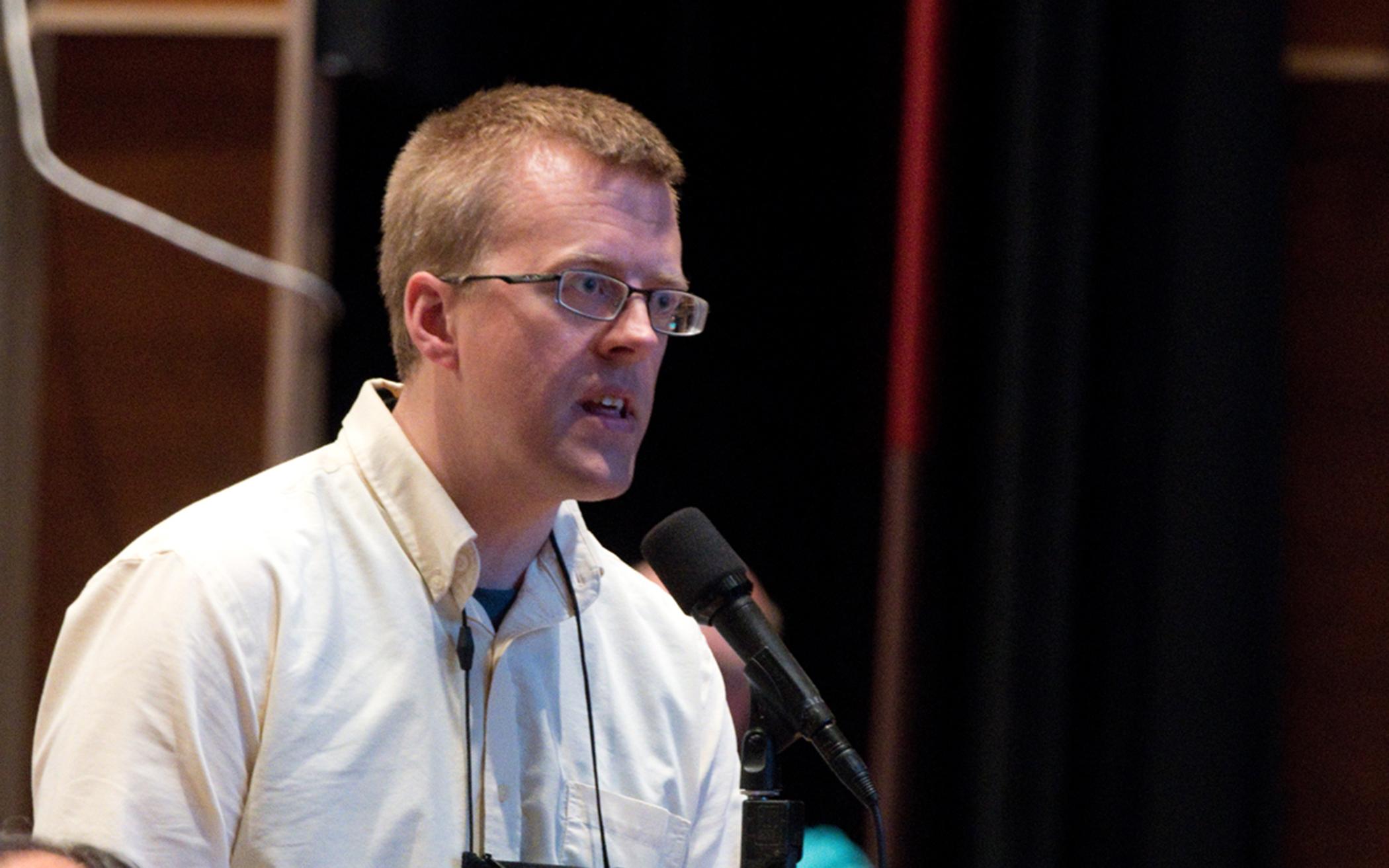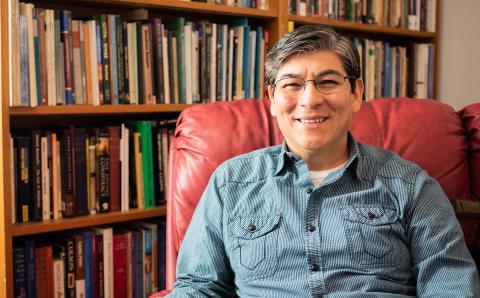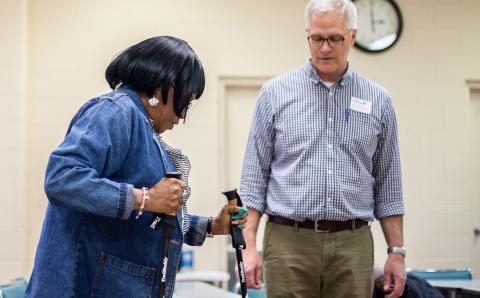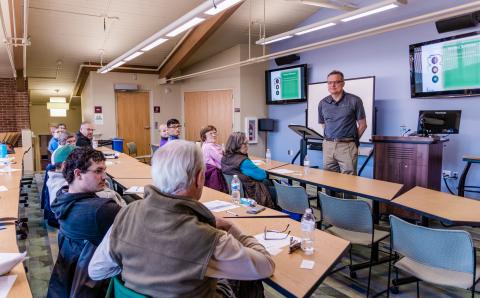Synod 2019 is just the fourth synod (annual general assembly) of the Christian Reformed Church to include deacons as delegates. While not every classis (regional assembly) sent a deacon delegate this year, deacons who came found the participation valuable and eye-opening.
“You learn a lot about all that the denomination does at a bigger level,” said Nathan Vos, 34, a deacon delegate from Classis Alberta North.
Brent Van Schepen, 31, a deacon delegate from Classis Minnkota, said he could speak as freely to issues as a minister of the Word or any other delegate. Synod organizes delegates into advisory committees in order to divide up the agenda to cover the material more efficiently. Van Schepen said, “In our committee, I couldn’t even tell who was which kind of delegate; we all came to the work equally.”
Emphasizing the parity of church offices was one of the reasons Synod 2015 adopted the change of adding deacons. It was part of a wider revitalization of the offices of elder and deacon. (See The Diakonia Remixed: Office of Deacon Task Force report in the Agenda for Synod 2013.) The outcome has been a “relentless incrementalism” of change, said Andy Ryskamp, who served as a staff adviser on the Office of Deacon Task Force 2010 to 2013 (while he was U.S. director of what is now World Renew).
For the most part, Ryskamp said, “there seems to be an eagerness on the part of deacons to be thinking through their leadership role. They recognize there is a leadership expectation [and they’re asking] ‘how do we do this effectively?’”
In Canada, support for deacons is provided by Diaconal Ministries Canada, led by Ron Vanden Brink. Adapting to the shift has been perhaps easier in Canada because the office has been supported for such a long time by the national network. “Our diaconal ministries goes back into the early ’60s and the late ’50s, and there isn’t anything comparable in the States, so when we talk in Canada about the role of deacons, especially with [church] officers, they kind of get it at a different level,” Vanden Brink said.
The Council of Delegates intends to continue supporting the development of deacons. In its report to synod, the COD said “... it has become apparent that there is a need in the United States to have, as in Canada, a staff person or persons who provide such services on an ongoing basis.” (Agenda for Synod 2019, pp.47-48)
In 2019, one Canadian classis (Classis Niagara), one binational classis (Classis Lake Superior), and seven American classes are without a deacon delegate at synod. This is the largest number of classes missing a deacon delegate since the practice began in 2016. In several other classes, the interim committee was tasked with finding a deacon delegate after the usual practice failed to find one.
That was the case for Van Schepen from Classis Minnkota. He’s serving his first term as deacon at Bethel CRC in Edgerton, Minn., and hadn’t even attended a classis meeting when his pastor encouraged him to volunteer for synod since a deacon delegate hadn’t been found. Minnkota didn’t send a deacon delegate in 2018.
Vos, Classis Alberta North, got delegated to synod at his first meeting of classis. “If you’re asked and you have those gifts, you should kind of take that seriously,” he said. A business analyst for a municipality, Vos said he recognizes he has available vacation time where others may not. Van Schepen is a teacher, already on summer break, and was able to take a week off his summer construction employment.
Shanti Jost, 74, delegate from Classis Hudson, is also serving her first term as deacon. She appreciated attending the deacon dinner hosted by synod Tuesday evening. “It was good to hear from other deacons how they serve in their churches,” Jost said. For example she mentioned deacons who open their church services as a praise team, and churches who have separate teams to count money, freeing the deacons for more missional work.
For Classis Northern Michigan, a grouping of 14 Christian Reformed congregations, finding a deacon available for synod has been hard. It hasn’t sent one since 2016. Ken Koning, chair of that classis’ interim committee speculates it’s a case of the typically younger deacons just being less available to take a week off work. Koning said the shift toward electing officers based on giftedness and not simply seeing deacon as a “training ground” for elder is beginning to happen in some congregations, but it is slow.
Vanden Brink and Ryskamp suggested that deacons might play a bigger role over time as the agenda for synod becomes more reflective of the presence and the work of all the office bearers. “A lasting question is how should the agendas of these events change,” Vanden Brink said. “Once we had deacons [at synod], why didn’t we stop and say ‘hold it, what should be different now?”
Synod 2019 is meeting at Calvin College in Grand Rapids, Mich., from June 14-20. For continuous coverage from our award-winning news team, download the Banner app on your mobile device or follow The Banner Magazine on Facebook or @crcbanner on Twitter. You can find more tweeting by following hashtag #crcsynod. News stories will be posted on The Banner’s dedicated Synod web page several times daily. Unless noted otherwise, all photographs are by Karen Huttenga.
About the Author
Alissa Vernon is the news editor for The Banner.









